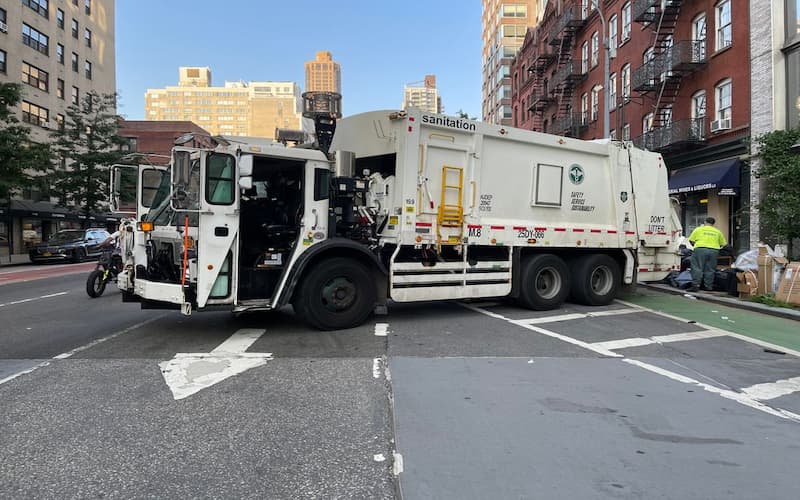Adams Administration's NYC Garbage Study Aims for Cleaner Streets
Manhattan is exploring a containerization plan for its trash disposal, which could lead to a cleaner and more efficient system, though challenges remain.

May 8, 2023
In 1811, Manhattan's original city planners decided against the inclusion of alleyways on the island. While this choice had certain advantages, it left residents with limited space to dispose of their waste. As a result, Manhattan's 1.6 million inhabitants, and those living in the densest parts of the five boroughs, have had to endure the unsightly mess and odor of mounds of trash on their curbs. Over the years, numerous mayors have failed to address this issue, but now the current administration is finally taking steps toward finding a solution.
Mayor Eric Adams and Sanitation Commissioner Jessica Tisch deserve recognition for their detailed 96-page report that outlines the logistical challenges of transitioning from traditional trash collection to a more advanced garbage disposal strategy. The proposed system would use sealed containers that are collected by sophisticated trucks with robotic arms, replacing the manual labor of waste handlers.
The report reveals that 89% of city streets could support the proposed containerization plan, with 39% of these streets sharing bins and 50% being designated for residential pick-up. Only 11% of streets would be unable to accommodate the proposed containers due to existing infrastructure or constraints. Although sacrificing street parking would be necessary to make room for the bins, many residents would likely consider this an acceptable tradeoff.

However, several obstacles may likely hinder the plan's fruition. One significant challenge involves the time required to develop a street-legal truck that complies with federal regulations and the city's space restrictions. The report estimates that this process could take around three years. Additionally, the document states that the most feasible plan involves fixed bins instead of rolling ones, which would require modifying existing sanitation trucks. Despite these challenges, a pilot program in uptown Manhattan using wheeled containers may provide a starting point for further exploration and eventual implementation of the strategy.
Even with the various hurdles, this plan holds promise for a cleaner and more efficient trash disposal system across Manhattan. If successful, it could mark the beginning of transformative change throughout the city.
